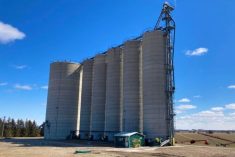The Ontario Liberal government appears to be attempting to mend the gap created between the government and rural Ontario.
Premier Kathleen Wynne apologized on Nov. 19 to Ontarians for the significant rise in electricity costs, now about the highest in North America.
According to media reports she said it was her mistake and her government should have not let rates rise as significantly as they have in Ontario.
At the Ontario Federation of Agriculture annual meeting in Toronto this week Glen Murray, Ontario’s minister of environment and climate change, was also free with apologies and requests to build bridges. Natural Resources Minister Kathryn McGarry also spoke at the event to clarify issues relating to some species at risk regulations.
Read Also

India slaps 30 per cent import duty on yellow peas
India has imposed a 30 per cent duty on yellow pea imports with a bill of lading date on or after Nov. 1, 2025.
Murray has been excoriated by farmers for heavy-handed regulation of neonicotinoid pesticides and the floating of other significant environmental policies that would be detrimental to farmers.
“I know many of you are upset, to say the least, on the issue of neonicotinoids,” said Murray. “We’re not doing this to be mean and be jerks and create a lot of paperwork for you. I will apologize for not trying hard enough to build those bridges, but I tried.”
Murray has been accused of being disconnected from farms, and he admits that representing a downtown Toronto riding means he is not on farms every day. However, he listed off his connections to agriculture, including helping on his father’s best friend’s dairy farm, working with farmers when he was the mayor of Winnipeg and visiting 15 farms in the past two summers.
“I’ve spent two to three hours with some of you and you’ve taught me an immense amount. No, I am not against industrial-scale agriculture as some people have suggested.”
Murray praised for the efficiency and economic contribution farmers make to the economy.
“Precision agriculture is truly amazing. I visited a farm in Chatham-Kent. They had all the computer maps on the computer, everything that had gone onto the field, how it had been planted, how the fertilizer and the pesticides had been applied and they basically said ‘Minister, don’t touch anything.'”
Ontario has a 25 per cent productivity gap in almost every sector of the economy, said Murray. Filling that gap would create about $7,000 more income per person. But he says that agriculture does not have that gap and that other economic sectors could learn from agriculture’s efficiency and rapid adoption of technology.
“We have a lot to learn and people should approach farmers with some humility.”
Murray also encouraged farmers to be open about the technologies used on farms, including the use of genetic modification, pesticides and management practices.
Consumers feel more entitled to information, he said, including what is in their children’s plastic toys and what is in their food. They also want to know everything about government.
That means the pressure for information that farmers feel from consumers, isn’t any different than any other sector of the economy.
“It’s made all of us, whether it’s me out trying to get votes or you trying to put food into stores, more sensitive to those challenges,” he said.
Despite Murray’s support for commercial agriculture in his speech, he didn’t back down on regulations on neonics due to the effects of the soil treatment insecticide on bee populations.
He did acknowledge that bee health is affected by many factors and that bee winter kill varies greatly. Winter 2016 was much better than previous years, with 18 per cent winter kill, closer to the goal of 15 per cent.
“Is there a beepocalypse? I don’t buy that extreme rhetoric.” However, “the overall health of bees is in serious decline and has been for decades.”
He maintained the conditional registration of neonics a decade ago was not based on the extremely widespread use of the products by farmers.
“It was never studied as a prophylactic, widely used pesticide,” he said.
The province is not banning the pesticide group, he said, but will continue to restrict its use. He said some of the concerns about limitations for certified crop advisors who work for companies being able to provide advice to farmers have been worked out, and an announcement would be coming soon.
“We will screw up. We’re trying to deal with difficult things. If you don’t think that in my world you are the most important people, then you really fundamentally misunderstand me.”
The environment minister received applause from the OFA delegates at the meeting, but he and the Liberal government have a long road ahead to build trust with rural Ontarians, despite their professions of support for commercial agriculture.
— John Greig is a field editor for Glacier FarmMedia based at Ailsa Craig, Ont. Follow him at @jgreig on Twitter.













